In a world where cloud artificial intelligence reigns supreme, it’s hard to keep up with the pace of innovation. Imagine harnessing the power of AI without the hassle of heavy hardware. That’s right—cloud AI is like having a personal assistant who never sleeps, never complains, and always has the latest tech at their fingertips.
As businesses scramble to stay ahead, cloud AI offers a buffet of possibilities. From predictive analytics to smart automation, it’s transforming how companies operate. And let’s face it, who wouldn’t want a virtual sidekick that can crunch numbers faster than a caffeinated accountant? With cloud AI, the future isn’t just bright; it’s practically blinding. Dive in and discover how this tech marvel is reshaping industries and making life just a little bit easier.
Table of Contents
ToggleOverview Of Cloud Artificial Intelligence
Cloud artificial intelligence leverages remote servers to process data and run algorithms for machine learning and analytics. Businesses gain access to advanced AI capabilities without requiring extensive local hardware investments. Enhanced flexibility allows organizations to scale their operations rapidly based on demand.
Predictive analytics illustrates AI’s impact on decision-making. This technology analyzes vast datasets to forecast trends, helping companies identify opportunities and mitigate risks. Smart automation automates repetitive tasks, allowing employees to focus on more strategic activities.
Real-time collaboration presents another advantage of cloud AI. Teams can access shared AI tools simultaneously, promoting creativity and innovation. Improved resource allocation results from the insights generated by cloud-based AI, optimizing costs and enhancing productivity.
Data security remains a top concern. Leading cloud AI providers implement advanced security measures, ensuring sensitive information remains protected. Compliance with regulations is achievable, as many providers offer solutions that meet industry standards.
Real-world examples showcase cloud artificial intelligence’s effectiveness. Companies like Amazon and Google utilize cloud AI to enhance customer experiences and streamline operations. Analytics platforms improve their offerings using cloud AI, enabling businesses to adapt swiftly to market changes.
Cloud AI continues to transform various sectors, including healthcare, finance, and manufacturing. In healthcare, predictive analytics aids in patient outcomes by analyzing health trends. Financial institutions utilize AI for fraud detection and risk assessment, while manufacturers optimize supply chains through intelligent forecasting.
By integrating cloud artificial intelligence, organizations position themselves for success in an increasingly competitive environment.
Key Features Of Cloud Artificial Intelligence
Cloud artificial intelligence offers numerous features that enhance business operations. The following aspects highlight its primary advantages.
Scalability
Scalability represents a critical feature of cloud AI. Businesses can swiftly adjust resources according to demand, accommodating growth without disruption. Service providers typically offer flexible options, allowing organizations to scale applications up or down seamlessly. This adaptability aids in managing workloads efficiently, ensuring performance remains optimal during peak times. Companies benefit from this feature, enabling them to experiment with new initiatives without heavy upfront investments in hardware.
Accessibility
Accessibility stands out as a significant characteristic of cloud AI solutions. Users can access advanced AI tools from anywhere with an internet connection, promoting collaboration among teams. Remote access facilitates prompt decision-making, especially in industries that require quick responses, such as finance and healthcare. Enhanced visibility into data allows employees to derive insights in real-time. Organizations leverage this feature to foster innovation and creativity, empowering teams to work effectively regardless of their physical location.
Cost-Effectiveness
Cost-effectiveness emerges as a vital benefit of cloud AI. Businesses avoid large capital expenditures associated with on-premises infrastructure when utilizing cloud services. Subscription models offer predictable costs, making budgeting simpler. Organizations often find that pay-as-you-go pricing provides significant savings, eliminating the need to maintain idle resources. This affordability enables smaller companies to access cutting-edge technology, leveling the playing field in competitive markets. Efficient resource utilization contributes to overall savings, allowing for investment in other strategic areas.
Applications Of Cloud Artificial Intelligence
Cloud artificial intelligence finds applications across various sectors, transforming operations and enhancing efficiency. Its impact is profound in business, healthcare, and urban environments.
Business Intelligence
Business intelligence leverages cloud AI to analyze vast data sets. Companies gain insights into customer behavior and market trends. Predictive analytics become essential for forecasting sales and optimizing inventory. Companies can make data-driven decisions quicker, thus improving operational efficiency. Automation tools streamline processes, reducing the need for manual intervention. Real-time analytics allows organizations to adapt strategies based on immediate data. This adaptability positions businesses ahead of competitors, ensuring they respond promptly to market changes.
Healthcare
Healthcare benefits significantly from cloud AI applications. Patient outcomes improve through the analysis of medical records, which allows for personalized treatment plans. AI aids in diagnosing conditions by examining imaging data more accurately than traditional methods. Additionally, predictive modeling helps in identifying at-risk patients, facilitating early intervention. Cloud solutions also enhance operational efficiency in facilities by managing appointments and resources. Remote monitoring tools support continuous patient care and reduce hospital visits. Overall, cloud AI transforms healthcare delivery, making it more responsive and effective.
Smart Cities
Smart cities utilize cloud AI to enhance urban living. Traffic management systems optimize flow, reducing congestion through real-time data analysis. Public safety is improved as AI analyzes surveillance footage for quicker response times in emergencies. Waste management benefits from predictive analytics, ensuring efficient collection routes. Additionally, energy management systems optimize consumption based on real-time usage patterns. Environmental monitoring tools enhance sustainability efforts, as cities better understand pollution levels and resource consumption. Ultimately, cloud AI contributes to smarter, safer, and more efficient urban environments.
Challenges Of Cloud Artificial Intelligence
Cloud artificial intelligence faces several challenges that organizations must address to harness its full potential.
Data Privacy
Data privacy remains a major concern for businesses using cloud AI. Risks include unauthorized access to sensitive information and potential breaches. Adhering to regulations such as GDPR mandates organizations implement strict data protection measures. Some cloud AI providers offer features aimed at enhancing security, but responsibility ultimately falls on businesses to maintain compliance. Concerns about data ownership and how cloud providers may use stored data also challenge organizations. Understanding these issues is crucial to safeguard user information and build trust among customers.
Integration Issues
Integration issues present obstacles when implementing cloud AI solutions. Existing infrastructure may not easily accommodate new cloud services, resulting in compatibility challenges. Organizations often struggle with aligning legacy systems and applications with advanced cloud technologies. The complexity of data migration from on-premises systems to cloud environments adds another layer of difficulty. Successful integration requires careful planning and a well-defined strategy to overcome these hurdles. Addressing these challenges ensures a seamless transition and maximizes the benefits of cloud AI.
Reliability Concerns
Reliability concerns can hamper the effectiveness of cloud AI applications. Downtime and service interruptions pose significant risks to business operations. Network issues or outages at cloud providers can lead to data loss or decreased system performance. Ensuring that a reliable service is in place requires organizations to choose reputable providers with robust infrastructure and performance guarantees. Continuous monitoring of system performance helps mitigate these risks. Organizations can maintain operational integrity and ensure a stable AI experience through proactive strategies.
Future Trends In Cloud Artificial Intelligence
Cloud artificial intelligence is evolving rapidly, with innovations reshaping business landscapes. Emerging technologies are key to this transformation.
Emerging Technologies
Technologies like machine learning and natural language processing enhance cloud AI’s capabilities. Companies leverage computer vision for real-time data analysis, improving operational efficiency. Edge computing complements cloud AI, allowing data to be processed at the source, thus reducing latency. Furthermore, advanced machine learning algorithms gain traction by offering more accurate predictions and insights. This convergence of technologies enables smarter automation, helping organizations streamline processes and enhance decision-making.
Market Growth Predictions
The cloud AI market is on a significant growth trajectory, with projections estimating a compound annual growth rate (CAGR) of 26.2% through 2028. Increased adoption by various sectors drives this expansion, as companies recognize the importance of data-driven strategies. Demand for scalable and flexible AI solutions spurs investments, propelling the market forward. Furthermore, advancements in infrastructure and abundant data availability contribute to market dynamics. As a result, stakeholders across industries are expected to invest in cloud AI to stay competitive and meet evolving consumer expectations.
Conclusion
Cloud artificial intelligence is undeniably reshaping the business landscape. Its ability to enhance efficiency through predictive analytics and automation is a game-changer for organizations of all sizes. By leveraging cloud AI, companies can scale their operations, improve decision-making, and foster innovation without the burden of heavy hardware investments.
As this technology continues to evolve, its impact on various sectors will only increase. Organizations that embrace cloud AI will find themselves better positioned to navigate challenges and seize opportunities. The future holds immense potential for those who harness the power of cloud AI effectively, making it a vital component of modern business strategy.



